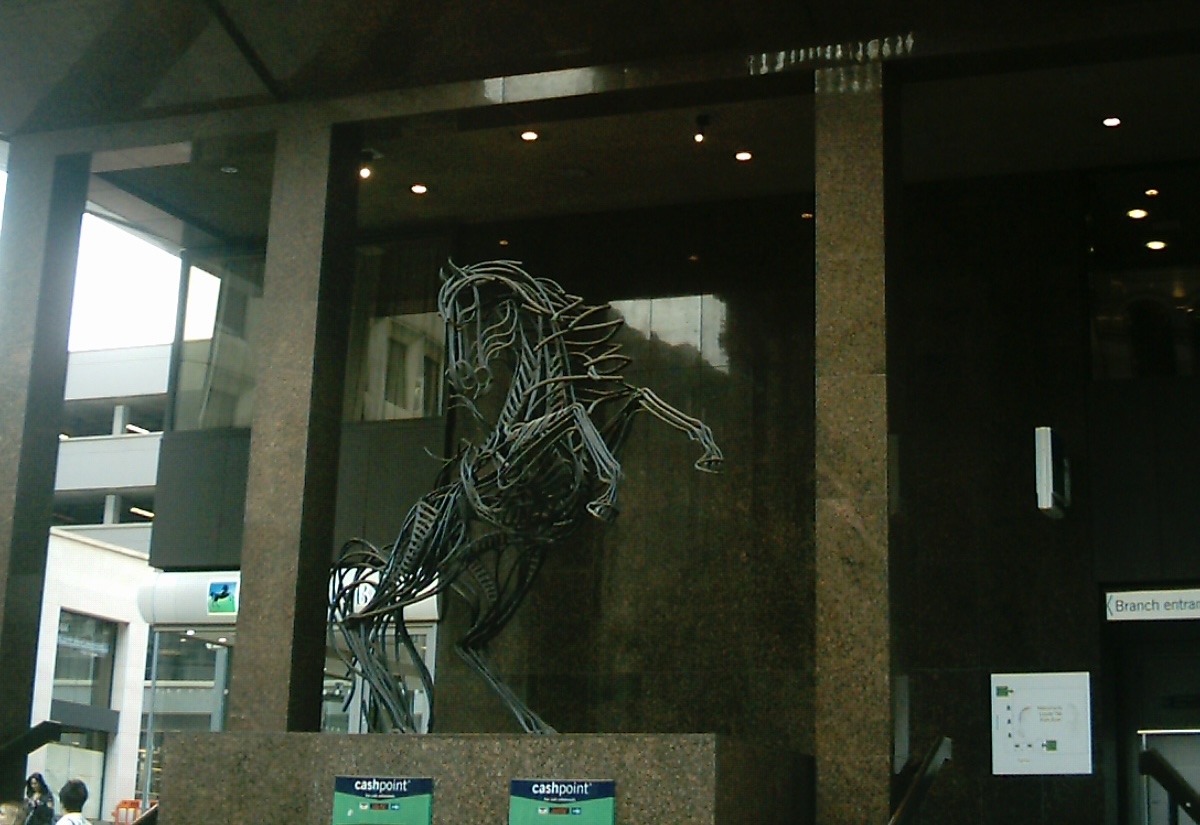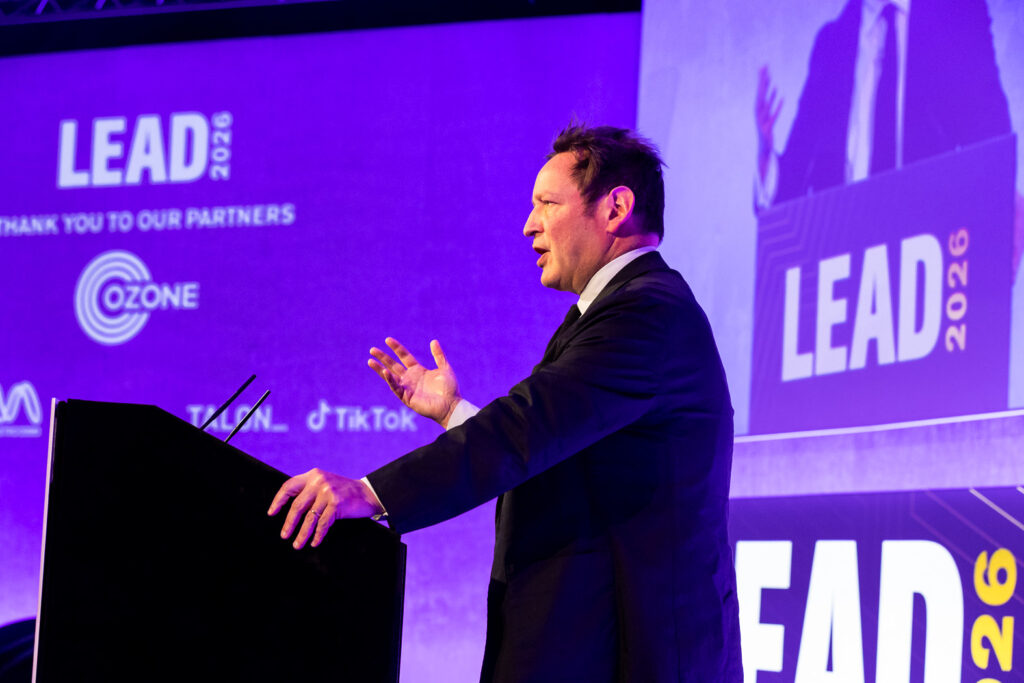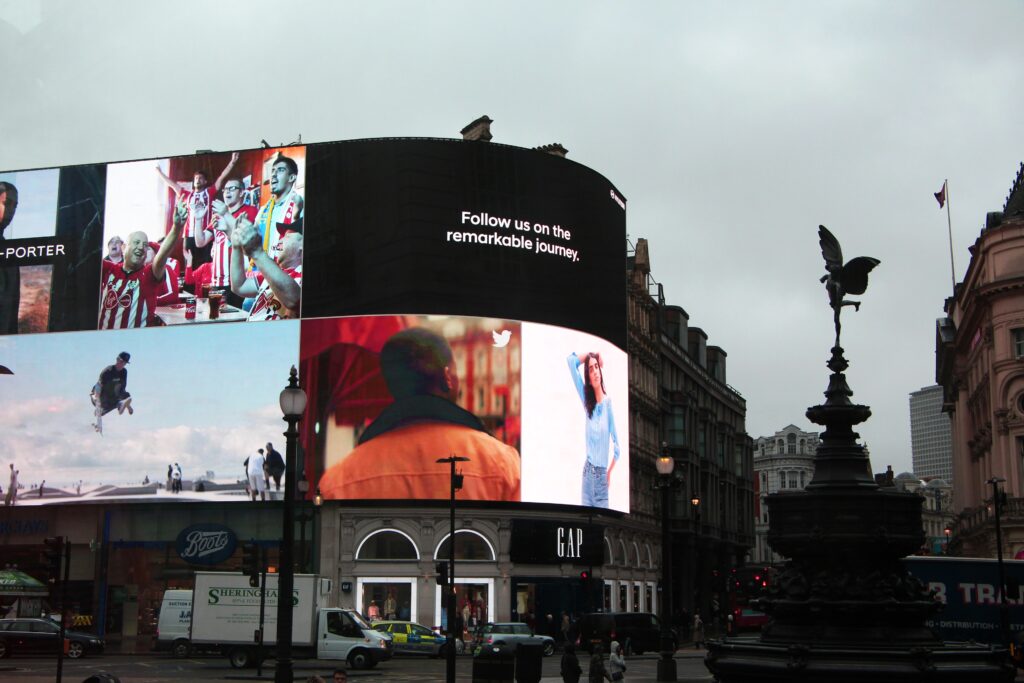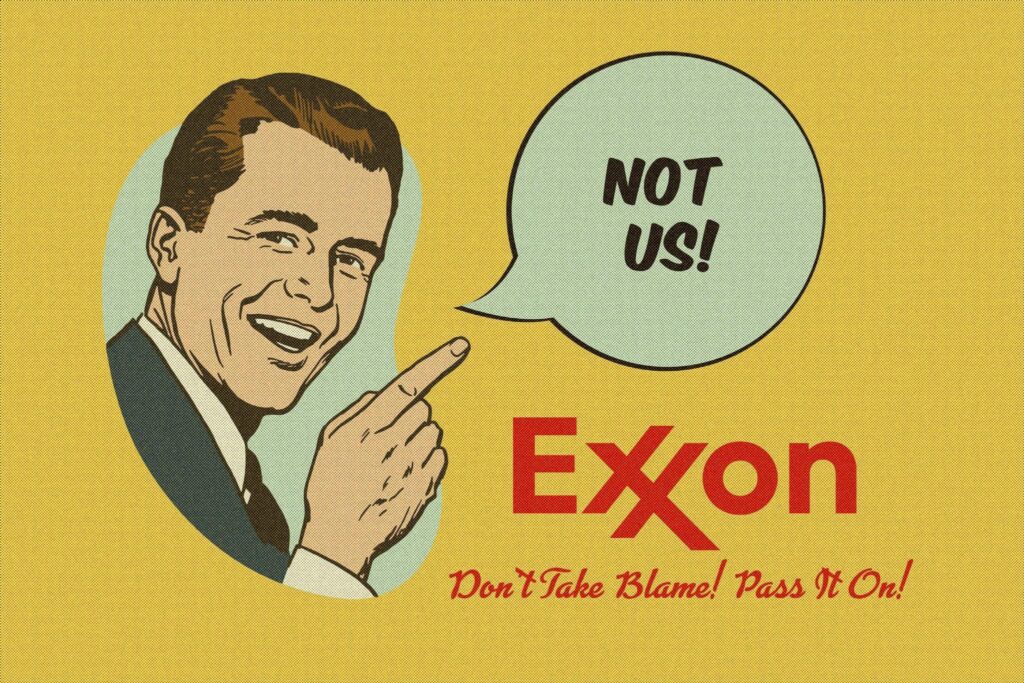The UK’s advertising regulator has banned an advert by Lloyds Bank about its “low carbon” policies for being misleading, in response to a formal complaint by the campaign group Adfree Cities.
The Advertising Standards Authority (ASA) ruled on Wednesday 18 December that the advert had “misled” consumers by promoting what the bank was doing internally to reduce its climate impact — but failing to mention its contributions to climate change by financing fossil fuel projects.
United Nations Secretary General Antonio Guterres has called for a global fossil fuel ad ban, and for ad agencies to drop their oil and gas clients.
The ad, which ran in May 2024 on the social media platform LinkedIn, cited several ways in which Lloyds was reducing its operational carbon emissions, such as by using “100% renewable energy to power our buildings”. The ad also said that Lloyds was putting “the weight of our finance into clean and renewable energy”.
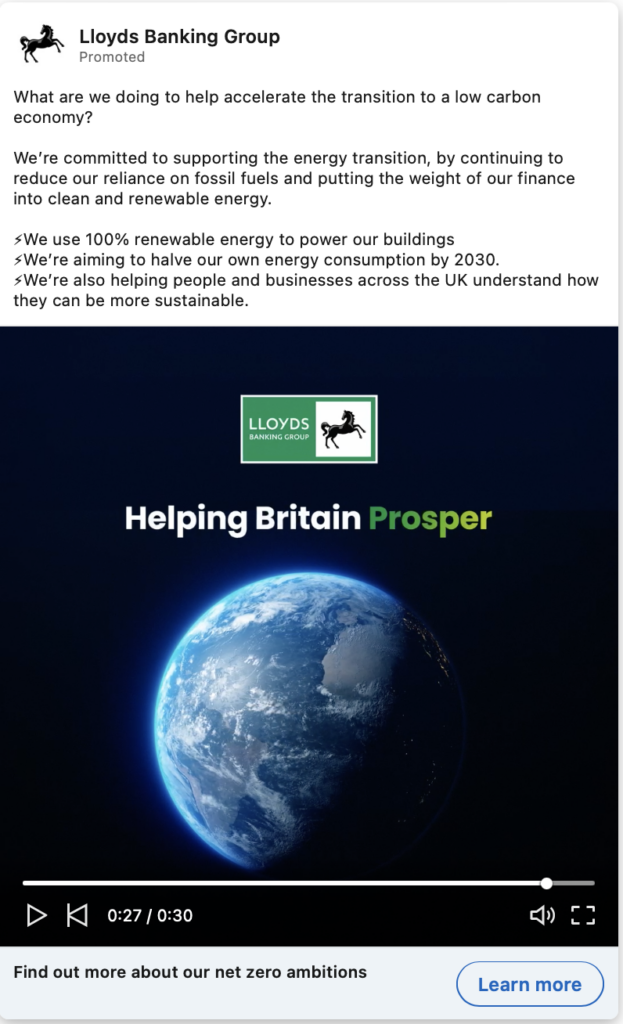
According to a 2024 “Banking on Climate Chaos” report produced by Rainforest Action Network and other environmental groups, Lloyds provided £16 billion ($20.34 billion) in financing to fossil fuel projects between 2016 and 2023. The bank increased its fossil fuel investments in 2023 by £500 million ($635.5 million) over the previous year, according to the report.
“A confusing blend of claims relating to Lloyds’ operational and financed emissions helps to obscure the bank’s continued financial support to fossil fuels,” said Veronica Wignall, co-director at AdFree Cities, the anti-advertising campaign group that brought the complaint to the ASA. “Whether conscious or not, this is a greenwashing tactic we’d expect to see from an oil major, not a bank that’s a trusted household name.”
The ASA rejected three additional complaints by AdFree Cities about ads touting the bank’s environmental initiatives, ruling that consumers were unlikely to think they were representative of the bank’s wider business activities.
Lloyds said it “remained committed to supporting transparent public discussion” around misleading advertising.
“The ASA Council outcome relates to a single LinkedIn post for a sustainability awareness day, which will not be repeated,” a Lloyds spokesperson said. “Reducing the environmental impact of our business remains a fundamental part of our strategy and we will continue to work alongside customers, the government, and the market to reach net zero by 2050 or sooner.”
Also on 18 December, the ASA informally resolved a complaint by the campaign group Opportunity Green against an ad campaign for MSC Cruises.
The complaint charged that the cruise line’s “For a greater beauty” ad campaign, launched globally at the beginning of 2024, had misled consumers by claiming that ships being powered in part by liquid natural gas were using “clean, green technology”, even though burning LNG — a fossil fuel — contributes to climate change.
MSC Cruises has agreed with the ASA to remove the ads, and to make sure that future ads will not make unsubstantiated environmental claims. However, other companies are still marketing the cruise line with the same claims Opportunity Green said in a statement.
Opportunity Green Legal Director David Kay said that the outcome was “a great result for consumers and the environment” in the statement. “But while MSC may have taken down its claims, it is still raking in profit from its ad campaign through ticket companies,” he said. “We’ll be contacting all of these companies over the coming days to make sure they take these ads down.”
Note: This story was corrected on 19 December 2025 to remove a reference to ad agency Adam&EveDDB, which had been incorrectly identified as the agency that created the banned ad for LLoyds Bank in a previous version of the story.
Subscribe to our newsletter
Stay up to date with DeSmog news and alerts

